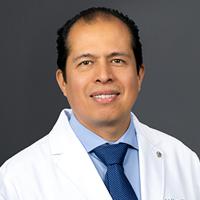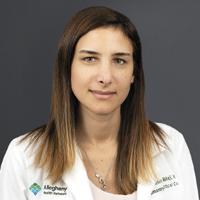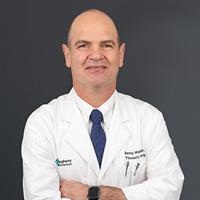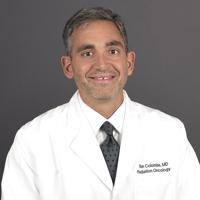
Lung and Pleural Cancer Center of Excellence
At the AHN Lung and Pleural Cancer Center of Excellence, we offer some of the most innovative, comprehensive, and compassionate care for diagnosing and treating lung cancer.
About the Lung and Pleural Cancer Center of Excellence
Our experienced team of lung cancer specialists include:
- Thoracic surgeons.
- Pulmonologists.
- Medical oncologists.
- Radiation oncologists.
- Radiologists.
- Pathologists.
- Genetic counselors.
- Researchers.
- Navigation team (nurses, social workers, dietitians, and financial counselors).
- Physical therapists.
- Occupational therapists.
- Integrative medicine experts.
- Palliative medicine practitioners.
- Mental health professionals.
-
Appointments
Cancer Institute(412) 578-HOPE
An accredited cancer program
When receiving care from an accredited cancer program, like AHN's, the facilities and team of specialists undergo rigorous review to ensure care meets or exceeds industry standards. AHN's accreditations in medical and hematology oncology, surgical oncology, and radiation oncology include:
- Medical and hematology oncology: American Society of Clinical Oncology (ASCO) —AHN Cancer Institute holds a certification for ASCO's Quality Oncology Practice Initiative (QOPI) Certification Program recognizing high-quality care for outpatient hematology-oncology practices focusing on safe handling and delivery of anticancer therapy medications.
- Surgical oncology: American College of Surgeons Commission on Cancer (CoC) as an Integrated Network Cancer Program. The CoC is a consortium of professional organizations dedicated to improving survival and quality of life for patients with cancer by setting and raising standards through cancer prevention, research, education, and monitoring of comprehensive quality care.
- Radiation oncology: The American Society for Radiation Oncology (ASTRO) — AHN is an Accreditation Program for Excellence (APEx) for radiation oncology recognizing facilities that deliver safe, high-quality radiation oncology care.
- Robotic lung cancer operations: 99% of our robotic lung cancer operations are done using small incisions. This is the highest rate in the Pittsburgh area.
In addition to our extensive accreditations, AHN also continually receives the highest designation from the Society of Thoracic Surgeons for our focus on minimally invasive surgeries.
Innovative, personalized lung cancer care
At the AHN Lung and Pleural Cancer Center of Excellence, we work with you to tailor a comprehensive treatment plan that meets your specific needs. Your team of lung cancer specialists may use a single treatment or a combination of therapies to give you the best results possible.
Division of Thoracic and Esophageal Surgery
The Division of Thoracic and Esophageal Surgery is focused on using minimally invasive surgical procedures to treat conditions in the chest cavity. By employing state-of-the-art robotic technology, driven by skilled surgeons, AHN patients can experience more precise care, reduced recovery times, and shorter hospital stays.
Precision Cancer Medicine and Genomics Services
By tailoring treatments through genomics — using your specific genes — the Precision Cancer Medicine and Genomics Services team at AHN can treat cancer on a personalized basis. This highly personalized approach allows for:
- Early detection and prevention.
- Personalized monitoring and management.
- Improved outcomes.
Interventional Pulmonology Division
Interventional pulmonology is a specialized field dedicated to treating diseases in the lungs and chest cavity using minimally invasive procedures. AHN's highly trained, experienced surgeons use advanced techniques and technology to improve health outcomes and reduce lung condition symptoms.
Medical Oncology Division
Medical oncology is a specialized branch of medicine that focuses on the diagnosis, treatment, and prevention of cancer using medications. Medical oncologists are doctors who use a variety of therapies, including:
- Chemotherapy: Using drugs to kill cancer cells.
- Targeted therapy: Using drugs that target specific molecules involved in cancer growth.
- Immunotherapy: Using drugs to boost the body's own immune system to fight cancer.
- Hormonal therapy: Using drugs to block hormones that fuel cancer growth.
- Stem cell transplantation: Using healthy stem cells to replace those damaged by cancer treatment.
Lung Cancer Precision Medicine and Developmental Therapeutics
Metastatic lung cancer is a complex and challenging disease. Traditional treatments often have limited efficacy and significant side effects. Precision Medicine and Developmental Therapeutics offer promising new approaches to improve patient outcomes.
Lung cancer treatment options at AHN include new options and minimally invasive surgical techniques. From pleural mesothelioma to malignant lung cancer, our team sees you as a person first and finds specialized treatment for you.
Lung and pleural cancer therapy
At AHN, we believe that cancer care must be comprehensive and collaborative. We approach treatment using all resources at our disposal. That means you have a team of doctors working on your specific case. With one combined clinic for pulmonary and thoracic treatment, the Drs. Sohini Ghosh and Benny Weksler and their teams work closely and examine all avenues to treatment. Patient diagnoses and progress are discussed and tracked, while ensuring the utmost care and respect are given, so treatment can be adjusted or improved upon. You have access to two doctors present during appointments so your questions are answered holistically.
Lung cancer screening
AHN is accredited by the Screening Center of Excellence and Lung Cancer Screening Center. For you, that means you’re getting the most comprehensive care. To earn this accreditation, AHN must operate at the highest level of experience, qualifications, and technical specifications.
Lung cancer screening begins with a low-dose compute tomography or LDCT. This is used to screen for lung cancer in people who are at high risk, such as those who smoke, have smoked, or have a history of lung cancer. There is no prep work for an LDCT, and it is safe and painless — taking only 15 minutes to complete.
What to expect
AHN sees a person first and a patient second. That means your cancer case is approached in a way that is as unique as you are, and your treatment plan is personalized to your specific needs.
Expert treatment
Depending on the stage of the lung cancer, your treatment might include pioneering robotic surgery, award-winning radiation therapies, or the latest forms of chemotherapy. We also offer innovative immunotherapy, which uses your own immune system to fight the cancer. In addition, your doctor considers if you would benefit from the clinical trials available. If you are eligible, you could help test the latest approaches to care.
In some cases, it’s possible to take oral medications that target specific cancer cells. Our skilled team of physicians, oncologists, and surgeons works with you to determine the right course of treatment for you, which may include:
Surgery
Surgery can be an intimidating word. Rest assured, our highly trained and skilled surgeons use the most state-of-the-art, minimally invasive procedures to get you back to the life you love. AHN is the top provider of minimally invasive surgeries in the Pittsburgh area and continually receives the highest designation from The Society of Thoracic Surgeons.
Radiation therapy
AHN has the only radiation oncology program in western Pennsylvania with facilities accredited by the American College of Radiology. The accreditation highlights our expertise and ensures we follow best practices for better outcomes. At the AHN Cancer Institute, you're receiving the highest quality care available.
Medical oncology
Our medical oncologists care for patients using techniques like chemotherapy, immunotherapy, and targeted therapy. You typically take these medicines by mouth (oral) or by vein (intravenous). Throughout your care, your physician will coordinate your medication needs. Your Navigation Team can also coordinate care and help you manage side effects.
Advanced medical oncology therapies for lung cancer include:
- Chemotherapy: These powerful drugs kill cancer cells. These drugs can also damage normal cells, causing side effects such as hair loss, nausea, and lowered blood counts. Fortunately, your body's normal cells can repair themselves, so the side effects are usually temporary. Throughout your treatment, we carefully monitor your wellness. We determine the correct dosage to reduce side effects and maximize the chemotherapy's effectiveness.
- Targeted therapy: This therapy can sometimes be more effective than chemotherapy, with fewer side effects. It works by attacking specific genes within the surrounding blood vessels, stopping the cancer's growth. Our team is skilled at detecting certain lung cancer mutations that respond well to these therapies.
- Immunotherapy: This therapy activates your immune system to fight cancer better. We use the latest FDA-approved medications, such as the newly approved pembrolizumab. We also offer many immunotherapy clinical trial options at our various locations, giving you access to the most innovative medications.
Genomic profiling
Genomic profiling is like creating a detailed map of your entire genetic makeup. It's a powerful tool used in medicine, especially in cancer care, to understand your unique genetic blueprint and how it might affect your health. At AHN, we conduct biopsies and test against 523 genes for cancer markers to get a whole view of your health. Using full blood samples, instead of partial, we can test for tumor recurrence faster.
Dedicated cancer navigation team
Our cancer navigation team includes highly trained nurses, financial advocates, and other supportive care professionals to help plan your care. Our nurse navigators can help explain your treatment to you and your family, schedule appointments, coordinate your care from home, and provide you with emotional support throughout your cancer treatment journey.
We have a cancer nurse line dedicated to you and your loved ones. It's free to anyone, at any time, 24/7. Call (412) 578-HOPE (412) 578-4673, and a cancer nurse will answer your questions, schedule an appointment, and provide support. If you're in Erie, call (814) 452-HOPE (814) 452-4673.
Lung and pleural cancer specialists
At the AHN Cancer Institute, our team of lung cancer specialists are ready to provide the most effective treatments, should you or someone close to you ever need it. The AHN Lung Cancer Leadership team meets regularly to discuss and confirm the right combination of therapies for a patient. We work with you to get an accurate diagnosis and to create an effective strategy for your treatment.
Chairperson

Use Find Care for a list of medical oncologists.
Currently active lung cancer clinical trials.
Leadership
Use Find Care for a list of pulmonary disease specialists.
Use Find Care for a list of thoracic surgeons.
Radiation oncology
Use Find Care for a list of radiation oncologists.
Pathology
Diagnostic Radiology
How to get care
If you want to be tested for or have been diagnosed with lung cancer, we're here to help.
Have you been diagnosed with lung cancer?
- To schedule with medical oncology and radiation oncology, call (412) 578-HOPE (412) 578-4673.
- To schedule with thoracic surgery at the following locations, call (412) 359-6137:
- Allegheny General Hospital
- Grove City Hospital
- Wexford Health + Wellness Pavilion
- To schedule with thoracic surgery at the following locations, call (412) 858-7088:
- Allegheny Valley Hospital in Natrona Heights
- Forbes Hospital
- Hempfield Neighborhood Hospital
Monthly cancer screenings
Early cancer detection saves lives. Find out more about AHN cancer screening dates, locations, and eligibility requirements for each screen offered. Then, call to register for your cancer screenings.
What to expect from your first appointment
Your nurse navigator and support professionals will guide you through the process, and doctors will explain everything and answer any questions you or your loved ones have.
Our locations
Visit our locations page to find a Cancer Institute location near you.
Lung cancer clinical trials and research
To stay at the forefront of innovation for our patients, AHN is continually researching and engaging in clinical trials. Lung cancer research is an area of continued research and development. Past trials have included advancements in lowering patient pain, stage IV lung cancer treatment, genetic markers for cancer recurrences, and immunotherapy before and after surgery.
What is a clinical trial?
We have and continue to be part of trials for lung cancers in all stages.
Clinical trials are studies that try to answer questions about new ways to treat cancer with medications, radiation, or surgical techniques. Previous trials have shown how new methods of treatment improve survival and quality of life, and reduce the risk of cancer returning.
You participate in a clinical trial only if you volunteer to do so and meet criteria for inclusion in the study. You can stop participating in a trial at any time.
Who can join a clinical trial?
The plan for the trial, called a protocol, explains what the trial will do and how the study will be done. Based on the questions the research is trying to answer, each clinical trial protocol outlines specific criteria necessary to be eligible to join the trial.
Common criteria for entering a trial are:
- Having a certain type or stage of cancer.
- Having received a certain kind of therapy in the past.
- Being in a certain age group.
Federal rules help ensure that clinical trials are run in an ethical manner, with your rights and safety protected. It's to ensure that you're not put at increased risk by participating in the trial, and that the results of the study are accurate and meaningful.
Conducting clinical trials helps us contribute to Cancer Moonshot — an initiative created by former President Joe Biden and the White House. The goal is to prevent more than 4 million cancer deaths by 2047 and improve the experience for people affected by cancer. We're doing our part to join this fight by collaborating with more than 60 private companies, patient groups, academic institutions, and nonprofits.
Refer your patient to an AHN Cancer Institute specialist
There are two ways for medical professionals, who are not a part of Allegheny Health Network, to refer their patients to an AHN Cancer Institute specialist and request their first appointment. You can:
- Call (412) 578-HOPE (412) 578-4673 to speak with an AHN Cancer Institute scheduling coordinator.
- Go to Find Care to find the right AHN specialist and the most convenient location. Then refer your patient, provide relevant patient details, and request an appointment directly from the doctor's profile.
For more information about referring your patient to an AHN specialist, read the Independent Physician Referral FAQs.
Follow your patient's health care at AHN with EpicCare® Link™
After referring your patient to an AHN specialist, use the EpicCare Link platform to collaborate with their AHN specialist, view your patient's test results, treatment plan, and progress.
If you are new to EpicCare Link, or need to request your own EpicCare Link account, read: EpicCare Link for Patient Follow-up, for user instructions and new account request forms.
When EpicCare Link is not an option for patient's AHN medical records
If you can’t access your patient's AHN test results through the EpicCare Link platform, your patient will need to complete and submit the correct AHN Medical Records Release form, based on their state of residency. Support your patient’s request by downloading the correct medical records release form for them:
EpicCare® is a registered trademark of Epic Systems Corporation and used with permission.
EpicCare® Link™ is a trademark of Epic Systems Corporation and used with permission.
AHN Cancer Institute Appointments and Access
Learn more about our appointment options, second opinions, locations, referrals, and resources that are at your disposal.






